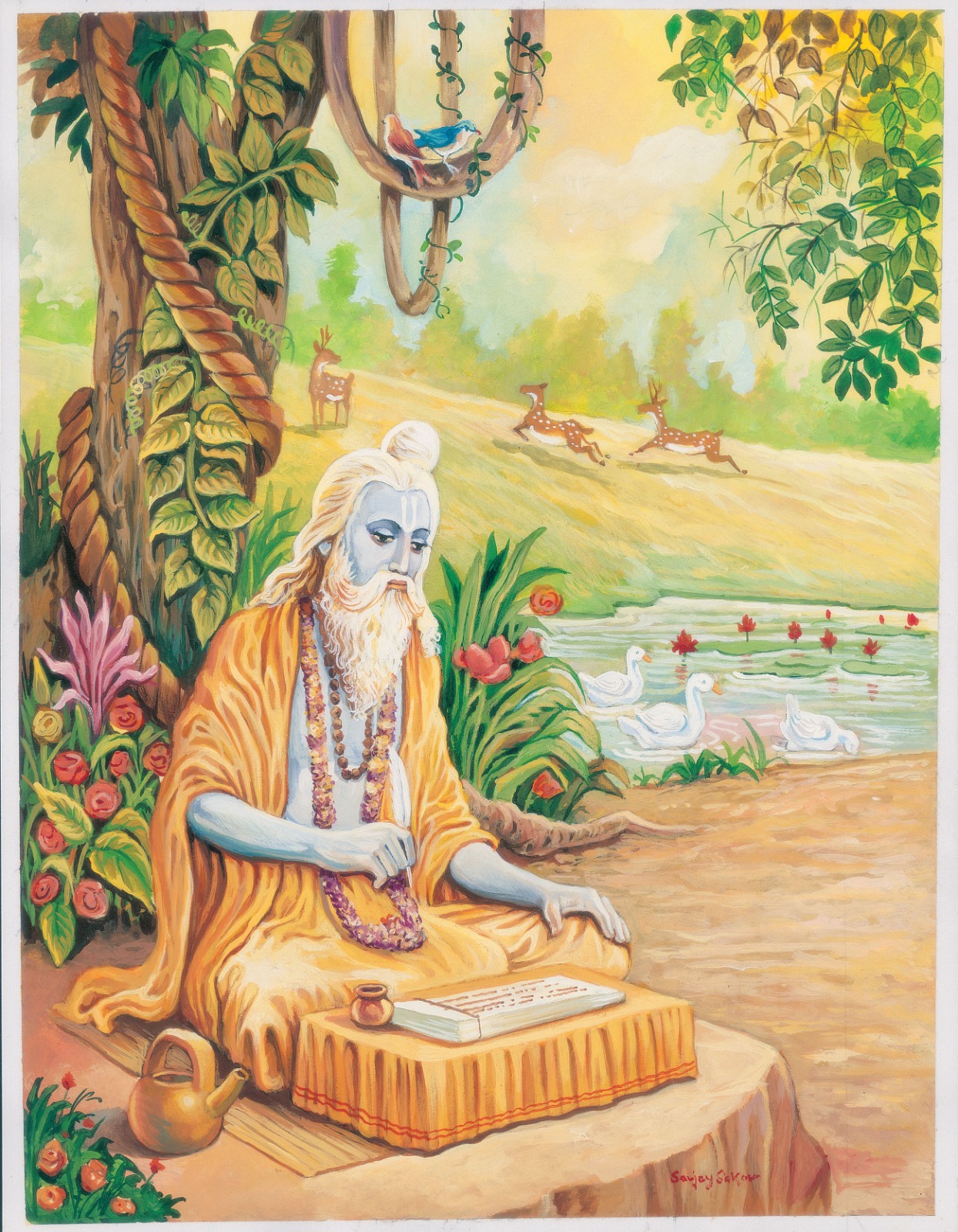

उदारा: सर्व एवैते ज्ञानी त्वात्मैव मे मतम् |
आस्थित: स हि युक्तात्मा मामेवानुत्तमां गतिम् || 18||
udārāḥ sarva evaite jñānī tvātmaiva me matam
āsthitaḥ sa hi yuktātmā mām evānuttamāṁ gatim
udarah sarva evaite jnani tvatmaiva me matam
asthitah sa hi yuktatma mam evanuttamam gatim
BG 7.18: All those who are devoted to Me are indeed noble. But those in knowledge, who are of steadfast mind, whose intellect is merged in Me, and who have made Me alone as their supreme goal, I consider as My very self.

Start your day with a nugget of timeless inspiring wisdom from the Holy Bhagavad Gita delivered straight to your email!
In the previous verse, Shree Krishna stated that the devotees situated in knowledge or jñānī bhakt are the highest. However, He clarifies in this verse that whatever may be the reason for their devotion, all His devotees are privileged; even the other three kinds are blessed souls. But the devotees seated in knowledge worship God selflessly, without expecting any material gains in return. Hence, the unconditional love of such selfless devotees even binds God.
Worldly love; is driven by the desire for self-gratification. There is a give and take attitude, and there is an expectation of receiving something in return from the beloved. However, Parā bhakti or divine love is totally different. It is filled with the desire for the happiness of the Divine Beloved and sacrifice in His service. Divine love fosters a giving attitude without expecting anything in return.
Chaitanya Mahaprabhu said:
kāmera tātparya nija-sambhoga kevala
kṛiṣhṇa-sukha-tātparya-mātra prema ta’ prabala
ataeva kāma-preme bahuta antara
kāma andha-tamaḥ, prema nirmala bhāskara
(Chaitanya Charitāmṛit, Ādi Leela, 4.166 & 171)[v16]
“Lust (worldly love) exists for self-happiness; divine love is harbored for Shree Krishna’s happiness. There is a tremendous difference between them—lust is like darkness and ignorance, while divine love is pure and illuminating.”
Jagadguru Shree Kripaluji Maharaj has very beautifully stated:
brahma lok paryanta sukh, aru muktihuñ sukh tyāg,
tabai dharahu paga prema patha, nahiṅ lagi jaiheñ dāg.
(Bhakti Śhatak verse 45)[v17]
“Give up the desires for worldly pleasures and that of liberation if you wish to walk the path of devotion. Else the pure waters of divine love will get tainted with selfishness.”
Sage Narad defined pure devotion in this manner:
tat sukha sukhitvam (Nārad Bhakti Darśhan, Sūtra 24)[v18]
“True love is for the happiness of the Beloved.” The materially motivated devotees cannot engage in such devotion, but the devotee who is in knowledge rises to this level of selflessness. When someone learns to love God in this manner, he becomes a slave of that Devotee. The highest quality of God is bhakta vatsaltā (his love for his devotees).
The Puraṇas state:
gītvā cha mama nāmāni vicharenmama sannidhau
iti bravīmi te satyaṁ krītohaṁ tasya chārjuna
(Ādi Purāṇ 1.2.231)[v19]
Shree Krishna says: “I become the slave of those devotees of mine, who chant my names and keep me close to them in their thoughts; this is a fact, O Arjun.”
In this verse Shree Krishna goes to the extent of saying that bound by the devotion and love of His selfless devotees, He looks upon them as Himself.